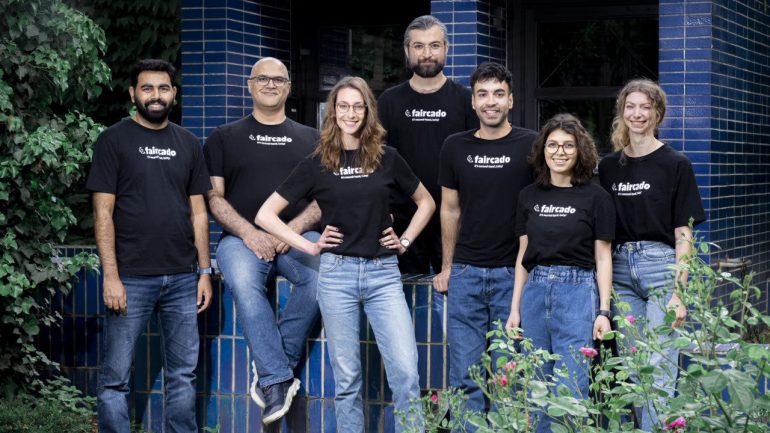- Faircado, a Berlin-based startup, secures €3 million in Pre-Seed funding for its AI-driven second-hand shopping assistant.
- Founded in 2022, Faircado offers a browser extension that suggests second-hand alternatives from a database of 60+ million products.
- The extension supports over 1,600 websites, including e-commerce giants like Amazon and Zalando.
- Faircado operates on a revenue-per-click and commission-based model, earning a percentage commission on sales and charging a fixed fee for redirected users.
- The funding round includes contributions from World Fund, Slush VC’s, Impact Shakers, and other investors.
- Plans include expanding into the UK and French markets, diversifying offerings to include furniture and children’s items, and enhancing image recognition technology.
Main AI News:
Berlin-based startup Faircado, creator of an AI-driven second-hand shopping assistant, has concluded a €3 million Pre-Seed funding round. Launched in 2022 by Evoléna de Wilde d’Estmael and Ali Nezamolmaleki, Faircado offers an AI-powered browser extension facilitating consumers to effortlessly locate second-hand alternatives while browsing online. Leveraging a database housing 60+ million products from 50 different partners such as eBay, Back Market, Grailed, Rebuy, and Vestiaire Collective, Faircado’s proprietary image-matching algorithms curate tailored resale recommendations by extracting key information like product images, titles, and brands.
Operating on both a revenue-per-click and commission-based model, Faircado earns a percentage commission on sales stemming from its platform and imposes a fixed fee for each user directed to partner sites. The company’s vision is to advance the circular economy and cater to the growing demand for convenient and eco-conscious shopping solutions by advocating for the purchase of pre-owned items, positioning re-commerce as a pivotal player in e-commerce’s sustainable evolution. Presently, Faircado’s extension supports over 1,600 websites, spanning from e-commerce giants like Amazon and Zalando to niche retailers like Patagonia and Apple, ensuring consumers access comparable items across various categories including fashion, electronics, and books.
By closely monitoring market demand patterns, Faircado intends to diversify its offerings to encompass furniture and children’s items, extending its disruptive influence beyond traditional retail sectors. The funding round comprises €1 million from World Fund, €1 million from Slush VC’s, €150 thousand from Impact Shakers, along with an initial investment of €750 thousand from BackBone Ventures, Earlybird, Minc accelerators, Peak Capital, and Atomico’s angels, among others in November 2022.
According to co-founder and CEO Evoléna de Wilde d‘Estmael: “World Fund’s expertise, expansive network, and dedication to climate tech that advances a regenerative world will play a pivotal role in scaling our product. Tim’s track record in founding and scaling successful brands like Ecosia and Eyeo to millions of users and revenue provides invaluable insights into the confluence of mass-market consumer tech and circular economy principles.“
Tim Schumacher, General Partner at World Fund, remarked: “We recognize substantial potential in Faircado’s mission to expedite the transition to a circular economy. Put simply, our society overconsumes, yet our storage spaces are brimming with items others desire. Faircado’s ability to highlight alternative, cost-effective options while shopping, such as on Amazon, is a testament to its significance in reshaping consumption habits.”
The infusion of fresh capital will facilitate team expansion, geographical expansion into the UK and French markets, and further enhancement of its image recognition technology.
Conclusion:
Faircado’s successful funding round and strategic plans signal a growing recognition and support for sustainable consumption practices. As the company expands its reach and offerings, it is poised to further disrupt traditional retail models, driving the circular economy forward and influencing consumer behavior towards more eco-conscious choices. This trend reflects a broader market shift towards sustainability, where businesses integrating environmental considerations into their operations stand to gain significant traction and support.

